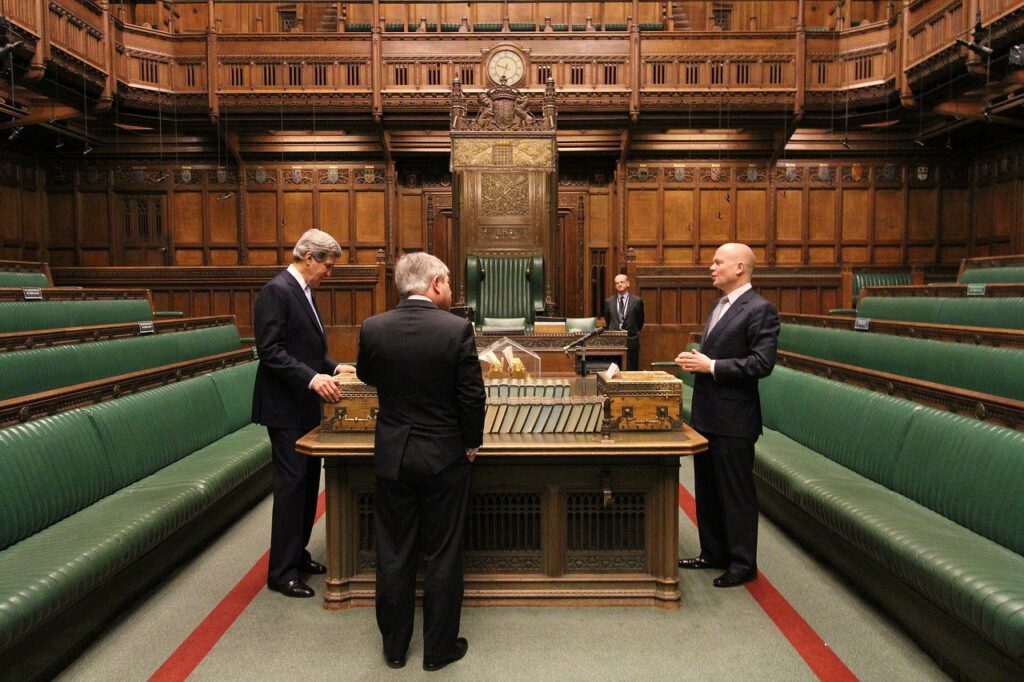Newly elected MPs now more likely to have been educated at state schools

SUTTON TRUST ANALYSIS FINDS OVER HALF OF NEW HOUSE OF COMMONS WENT TO COMPREHENSIVE SCHOOLS
Last week’s general election may have changed the political landscape, but the educational profile of the House of Commons is relatively unchanged, research (13 Dec) from the Sutton Trust reveals.
29% of MPs have been independently educated, compared to 7% of the population. This is the same as the 2017 general election. Over half (54%) of the new House of Commons went to a comprehensive school, up slightly from 52% following the 2017 election.
This research suggests that the educational backgrounds of members of the Commons is widening, albeit slowly. Of 155 newly elected MPs, 62% were educated at comprehensive schools, while a further 22% went to independent schools and 14% were educated at grammars.
Of the major parties, comprehensive schools were attended by 41% of Conservative MPs and 70% of Labour MPs. 16% of all MPs attended a grammar school, in comparison to 17% of the MPs elected in 2017.
7% of the general population attend independent schools, in contrast to 41% of Conservative MPs and 14% of Labour MPs.
Of the 173 MPs who went to independent schools, 11 went to Eton including Boris Johnson and Jacob Rees-Mogg.
Oxford and Cambridge have educated 21% of MPs, while a further 33% attended another Russell Group university. In recent years we have seen a growing number of MPs from a group of non-Russell Group universities such as Hull, Brunel, Sussex and Aberdeen, with 10, 8, 7 and 5 MPs respectively.
The Sutton Trust’s recent Mobility Manifesto contains practical and wide-ranging recommendations for improving social mobility, including at the top of British life.
These include:
Early Years
The Government should review its 30 hours of free childcare policy to ensure that childcare entitlements do not exclude the most disadvantaged families.
School Years – Admissions
State school admissions should ensure a better social mix across the system, with consideration given to ballots and priority for disadvantaged students, particularly to open up high performing comprehensive and grammar schools.
Open Access
Independent schools should be opened up, on a voluntary basis, to pupils from all backgrounds. As a pilot, entry to 10 leading independent day schools should be democratised through implementation of the Open Access Scheme, where places are allocated based on merit alone, not money.
Access to Opportunities – Highly Able
The new government should establish an evidence-led fund to support young people with high academic potential, particularly those from disadvantaged backgrounds.
Essential Life Skills
State schools should be funded and incentivised to develop essential life skills in their students both in and out of the classroom.
Higher Apprenticeships
There should be a focus on increasing the number of degree and higher level apprenticeships as an alternative to university.
University access – Contextual admissions
Contextual admissions should be used by more highly-selective universities to open up access to students from less privileged backgrounds.
University access – Post Qualification Applications
Post Qualification Applications (PQA) to university should be implemented to allow young people to make an informed choice based on their actual rather than predicted grades.
Student finance
Maintenance grants for students should be restored to at least pre-2016 levels to provide support for those who need it most and reduce the debt burden of the least well-off. In order to reduce their debt even more the government should reintroduce means-tested fees.
Access to the Workplace – Internships
The government should ban unpaid internships, ensuring that after 4 weeks, interns are always paid the Minimum Wage, or preferably the Living Wage.
Sir Peter Lampl, chairman and founder of the Sutton Trust and chairman of the Education Endowment Foundation, said:
“The landscape of British politics changed considerably this morning. However the educational background of the new House of Commons remains similar to the last one. There has been a small increase in the numbers of MPs educated at comprehensive schools.
“However, MPs are still four times as likely to have been to an independent school than a state school and three times as likely to have been to a grammar school than to a comprehensive school. If parliament is to truly represent the nation, it is crucial we act on a wide range of fronts so that talented people from all backgrounds have the opportunity to become MPs.”
METHODOLOGY: We sought to find data on all 650 MPs elected on Thursday 12th December to the House of Commons. We were able to find data on the school background of 605 MPs (93%), including 339 Conservatives, 189 Labour, 43 SNP, 10 Liberal Democrats as well as 21 other MPs from Plaid Cymru, the Greens, Sinn Fein, the DUP, the Alliance party, the SDLP and the Speaker. For university, this amounted to 629 MPs (97%), including 354 Conservatives, 194 Labour, 46 SNP, 11 Liberal Democrats as well as 24 MPs from other parties.
Information on MPs’ educational backgrounds were found primarily from public sources, such as candidates’ campaign pages, LinkedIn profiles, Who’s Who and local newspaper reports. Where information was not publicly available, we contacted candidates and their offices directly, asking them to provide data anonymously to be used in our figures. Many candidates were happy to provide us with this information, but some did not reply or declined to provide the information.
Elitist Britain , published by the Sutton Trust in June 2019, looks at the backgrounds of around 5,000 individuals in high ranking positions across a broad range of British society, and provides a definitive document of who gets to the top in Britain in 2019.











Responses